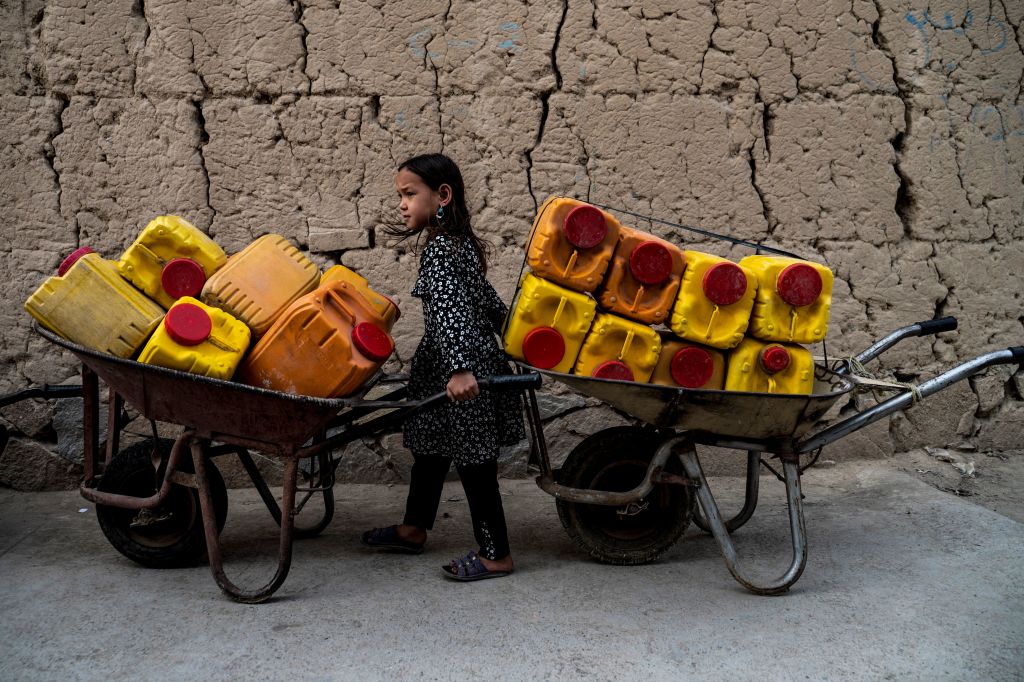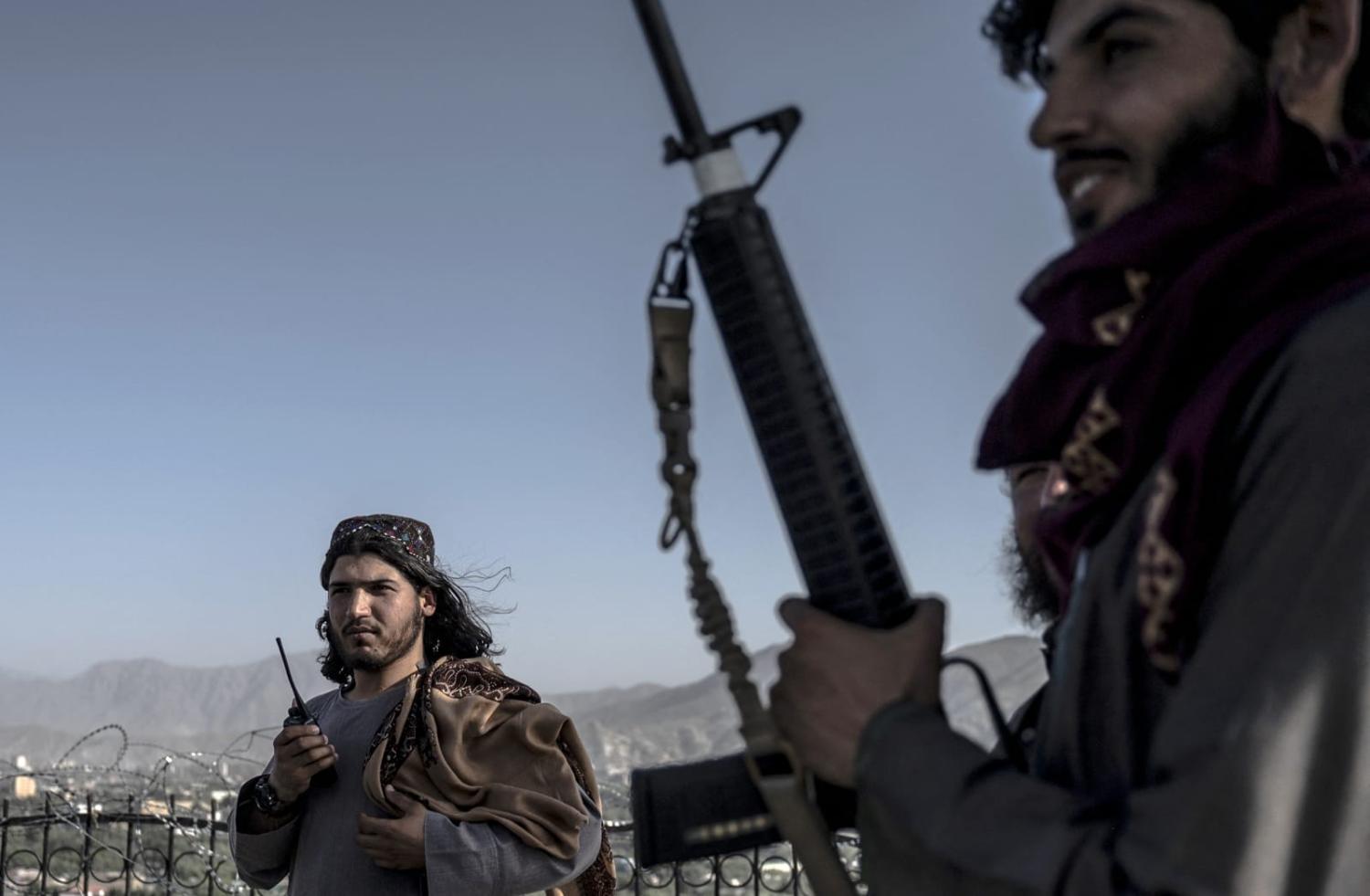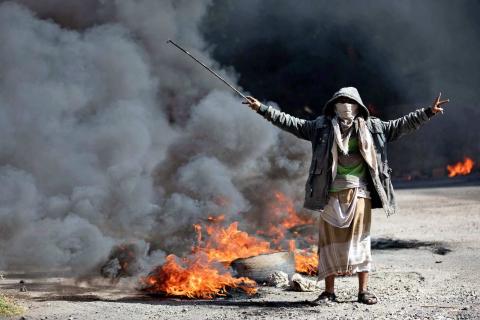For millions of war-weary Afghans, the only source of basic healthcare and education for years has been a particular European aid organisation. And now the de facto Taliban authorities have effectively shut down its operations, mad at the burning of a copy of the Quran in Sweden.
The Swedish Committee for Afghanistan is now too afraid to continue some of its work, leaving millions of needy people, particularly in the remote corners of the landlocked country, in disarray.
The Muslim world in general has been upset by the recurring instances of individuals and organisations in Europe inventing different ways to target their faith, such as burning copies of the holy book or mocking the prophet Muhammad. Many responded to the latest incident in Sweden with condemnation or disapproval via statements – only the Taliban took a step further, slapping a blanket ban on the Swedish Committee for Afghanistan.
This at a time when Afghanistan under the Taliban is facing a worsening humanitarian crisis, its banking system is under international sanctions, and aid delivery is stuttering. Following the US withdrawal in 2021, the Swedish Committee for Afghanistan had been one of the most important foreign aid institutions in Afghanistan, operating across 14 provinces to provide health and education. According to the charity, 2.5 million needy people in the country, mostly women and children, received medical aid at clinics in Wardak and Nuristan last year.
“Until the country of Sweden apologises to Muslims for this evil act (torching a copy of the Quran), the Islamic Emirate orders the cessation of all activities of the country of Sweden in Afghanistan,” said the Taliban’s deputy spokesman, Bilal Karimi in a statement.
The Swedish Committee for Afghanistan employs nearly 6,000 staff in a country where an overwhelming number of residents are faced with unemployment and hunger. The Taliban has compounded an already miserable situation.

Afghanistan has the unfortunate distinction of serving as a perfect case study for the world to formulate global policies aimed at insulating crucial humanitarian services from political repercussions. Quite a bit of the paperwork has been done in this effort since the first Geneva Convention of 1864, which laid the foundations for many of the rules governing the mandate of humanitarian actors. The world has since established massive institutions such as the United Nations, the International Committee of the Red Cross and Red Crescent Movement, along with others, that seek to operate with neutrality to assist those most vulnerable.
Yet now and then, complex and changing scenarios test those institutions. The world witnessed the breakdown of the crucial lifeline provided by humanitarian agencies in Syria, Iraq and other volatile countries, but as this latest episode in Afghanistan shows, we still lack the guardrails to protect non-partisan entities.
The circumstances with the Swedish Committee for Afghanistan are a tangle of thorns. An authority (the Taliban), which has no international legitimacy but claims all the rights of a sovereign entity (Afghanistan), has enforced a brutal policy restricting the crucial services of a humanitarian actor, thus violating the Geneva Convention. Yet how can this be enforced when this non-state actor has literally run the country for two years now?
A solution could be found in the recent proposal of Tobias Ellwood, Chair of the UK House of Commons Defence Select Committee, to reopen the UK embassy in Kabul. Indeed, reopening all Western embassies in Afghanistan and having diplomats on the ground to engage the Taliban would hold the chance to better understand the needs of the people.
Since the Taliban takeover, only the Russian, Chinese, Turkish, Iranian, Pakistani and a handful of other embassies continue to operate. Ellwood’s argument, uncomfortable as it might be, is that security has vastly improved, corruption reduced, and the opium trade diminished, so “shouting from afar will not improve [issues such as] women’s rights, we need to re-engage.” But he has been portrayed as a Taliban spokesman for floating this idea.
Ellwood goes too far in praising the “transformation of Afghanistan” under the Taliban. Women are protesting even now about the latest draconian move to force the closure of beauty salons in the country. But practical engagement offers the best chance of holding them to account rather than sitting back, expressing condemnation, but effectively abandoning the entire country and ignoring millions of people who are at the mercy of the Taliban.
The European Union, for instance, has been slowly and gradually reaching out to the needy Afghans through its mission in Kabul (a presence that does not extend to formal recognition of the Taliban). The EU recently launched a multi-million dollar program to combat climate change impacts and support farmers with new techniques to strengthen and diversify their incomes. Afghanistan is one of the worst affected countries by climate change, having made very little contribution to this dilemma.
China is vigorously seeking to secure mining deals through its diplomats in Kabul. Beijing hasn’t raised any concerns over the continued closure of girls’ schools for two years now in its blind quest for resources.
Ideally, humanitarian actors and crucial aid services need not be dragged into these muddy political arenas. But a perfect separation isn’t possible in such fragile zones. Extraordinary policies and actions help to save people.
The international community has sacrificed too many lives and fortune to also forget the sacrifices made by Afghans themselves. The world should not abandon Afghanistan again.

